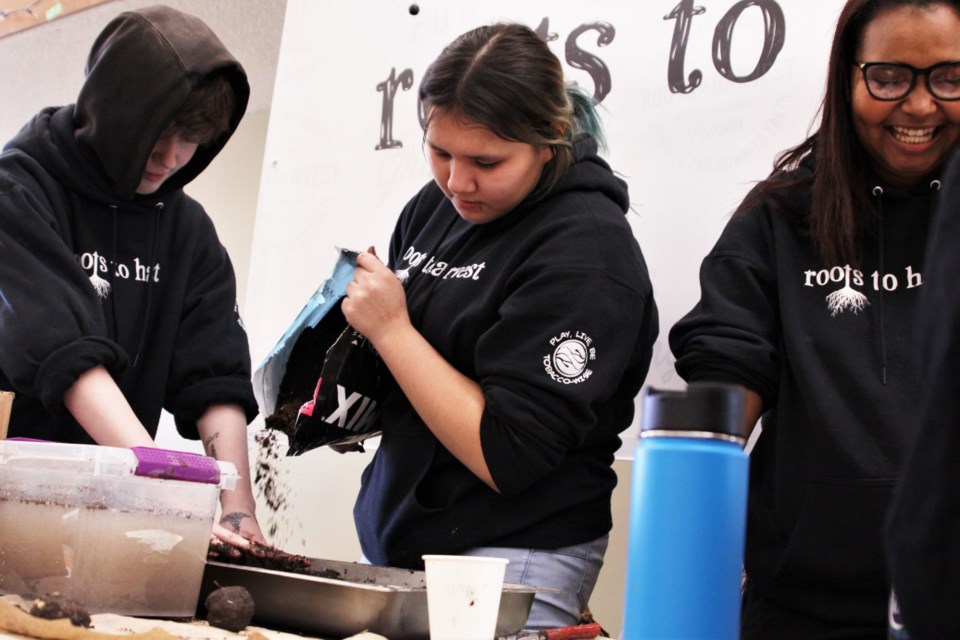THUNDER BAY – Spring may feel a long way off, but Thunder Bay’s green thumbs are already busy planning gardens. The annual Seedy Saturday event held this weekend offered a chance to dream of summer, and pick up seeds people may not find anywhere else.
“The idea behind Seedy Saturday is to introduce people to growing open-pollinated and heritage seeds that are adapted to this area,” explains Kim McGibbon, who has helped organize the event since it started here fifteen years ago.
The event brought well over a hundred people to the Oliver Road Recreation Centre, sharing conversation and gardening tips, as well as seeds. Many of the seeds exchanged or sold at the event have been optimized for Thunder Bay’s conditions for years by local gardeners. McKibbon says starting with those tried and tested seeds gives growers an advantage they won’t find at a gardening store.
“Some of them have been grown here for decades, so they’ve been adapting every year as they grow,” she says. She adds there are a number of considerations seed savers use in determining which varieties to preserve: “Is it drought-resistant, is it good for a shorter season, do they like it because it has a bigger head of broccoli, or because the spinach doesn’t bolt as fast?”
Joanne Henderson, a member of the national non-profit Seeds for Diversity, says when people save seeds, they’re helping to preserve cultural as well as ecological heritage.
“Some of us have been growing the same varieties of seeds for 30 years,” she says. “Often these are seeds that have belonged to their ancestors, or that were brought over with them when they immigrated.”
Henderson says many don’t appreciate how dependent Thunder Bay is on seeds from far away, often outside of Canada – a situation the Seedy Saturday event helps educate people about.
“Thunder Bay was identified years ago as an area of concern for seed security, because we didn’t have any seed producers here,” she says. “That was an eye-opener. We’re so reliant on external forces for our seeds, and we can’t count on that seed supply always being there.”
She adds that in a time of climate change, it’s more important than ever for local growers to save seeds in order to build resilience in the region.
Downstairs, several dozen people were thinking about how to protect those precious seeds after they’ve sprouted. John and Maureen Woodcock, founders of the McKellar Island Bird Observatory, were offering a workshop on how to protect gardens from deer.
The Woodcocks offered solutions based on their experience, such as planting strong-smelling varieties like mint, lavender, and hyssop, using a cayenne pepper spray, or scarecrows (be sure to move them around and change their clothes, or the deer will catch on, the couple advised).
In the recreation centre’s main hall, a number of organizations had set up booths, offering seeds and information. The Thunder Bay Beekeepers’ Association shared tips on making a garden pollinator-friendly, while students with Roots to Harvest gave out seed bombs and painted rain barrels.
McGibbon says it’s a challenge convincing gardeners – even many of the event’s attendees – to start saving their own seeds. But she thinks the event has helped grow awareness around the issue, which is still foreign to many. She was encouraged to see new faces at Saturday’s event.
“I was surprised asking people if they’d ever been here before, how many newbies there were coming through the door today,” she says. “People are learning what an open-pollinated seed is, or the fact that they can save seeds. Some people don’t know they can do that, and this event allows them to learn.”
